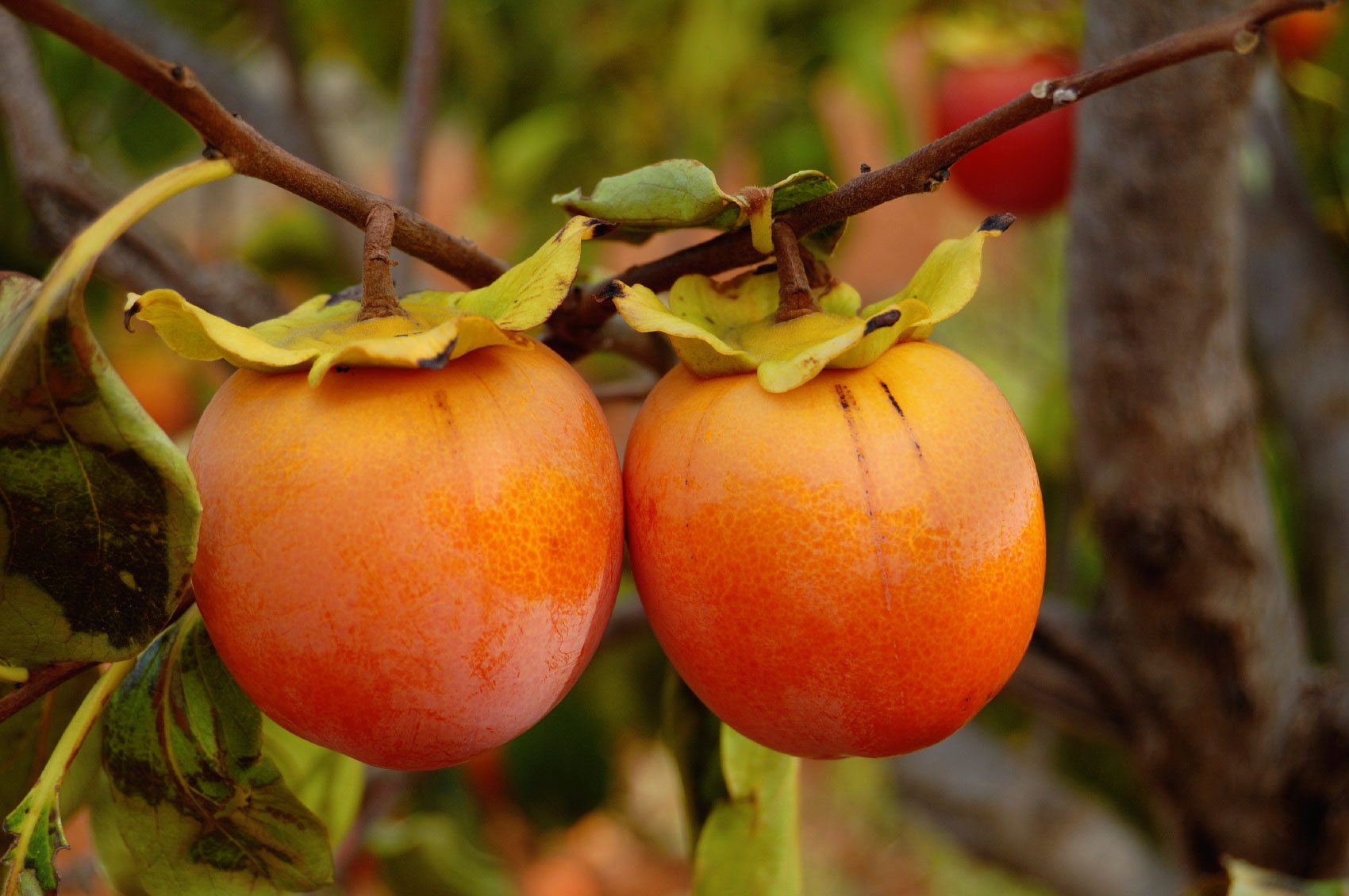Persimmon is berry, which is not a fruit, as many mistakenly believe.
The persimmon is a healthy, orange-coloured berry with a sweet taste. In Latin, its name translates as “apple of the heart”. Originally from China, persimmon are now grown in many countries, including Russia. The persimmon grows on a tree that can live up to 500 years.
Persimmon Varieties
There are about 300 varieties of persimmon, but only a few are popular.
The most popular persimmon varieties:
- Korolek. It is the most famous variety, with an orange colour and chocolate-coloured flesh.
- Mandarin persimmon. It looks like a mandarin, the flesh is very sweet. It is an unpeeled persimmon.
- Bull’s heart. Very large and hard orange, with a shiny and seedless flesh.
- Sharon. This variety is the result of crossing two popular fruits, apple and persimmon. It tastes like apricot, apple and quince at the same time. It is also more expensive than the others.
The persimmon is also divided into unharvested varieties (Korolek), variegated varieties (Zenji Maru chocolate persimmon) and astringent varieties (the most astringent variety is the Japanese Hachiya).
Benefits of Persimmon
- Persimmon contain a lot of beta-carotene, a provitamin A. It is needed by the human body as an antioxidant, which improves skin, hair and nails. Beta-carotene is also important for the eyes. In addition, persimmon, like most berries and fruits, contain vitamin C, which is also an important part of the human diet. Persimmon also contain vitamin B5. B vitamins in general are necessary for the basic metabolism of carbohydrates, amino acids and fats in the body.
- Persimmon also contains a deficiency of many trace elements iodine. For this, persimmon can also be added to the diet. As for other trace elements, persimmon also contain potassium and magnesium. Persimmon also contain dietary fibre, which should be present in everyone’s diet. They are essential for good digestion.
- Persimmon improves the cardiovascular system, the gastrointestinal tract and the thyroid gland. It also improves performance, boosts the immune system, calms the nerves and helps with anaemia. However, excessive consumption can lead to intestinal obstruction. It also has a diuretic effect.
Harms of Persimmon
- One fruit per day of 150-200 grams is the norm that can be used. However, there are situations where an individual person cannot tolerate persimmon, or has a disease of the digestive tract. It is important to remember that if a diabetic notices that after consuming even a minimal amount of persimmon their sugar level rises sharply, then of course it is worth limiting their consumption, but this will not be the case for everyone.
- And if, again, situations of elevated blood sugar occur after eating this berry, it is best to combine persimmon with protein products. Do not eat it on an empty stomach in its pure form, but as part of breakfast, for example. If there is some protein in the first meal, such as cottage cheese, yoghurt without fruit additives, this should be combined with the consumption of persimmon.
You may also like:

